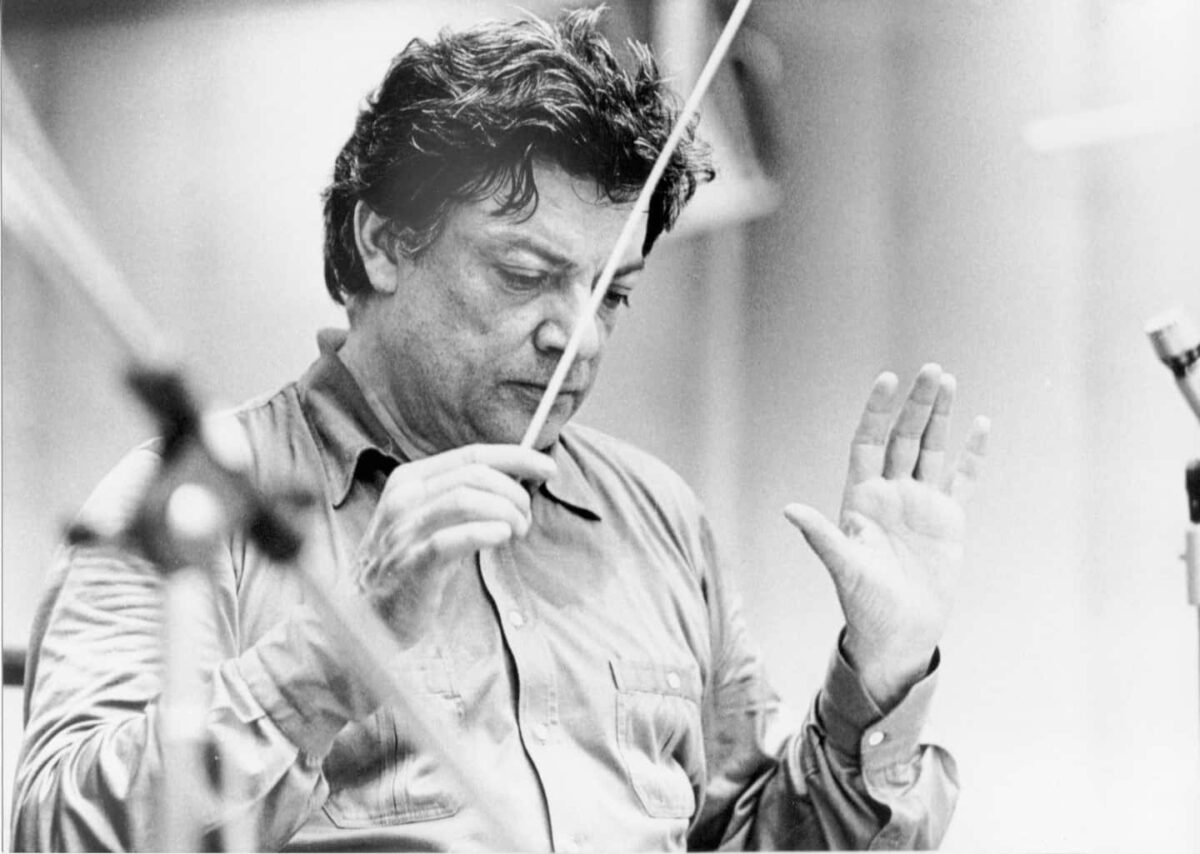Bruno Maderna
Bruno Maderna was born in Venice on April 21, 1920. Having taken a degree in composition at the Conservatoire of Santa Cecilia in Rome, under the guidance of Alessandro Bustini (1940), he went on to pursue advance studies in Venice with Gianfrancesco Malipiero (1942-43). He studied conducting under Alessandro Guarnieri (Siena (1941) and Hermann Scherchen (Venice, 1948).
From 1948 to 1952 Maderna taught at the Conservatoire of Venice. In 1949, with B.A.C.H. Variationen for two pianos, he took part for the first time in the Internationale Ferienkurse für Neue Musik of Darmstadt, where he began to teach in 1956. In 1950 he conducted his first concerts abroad, in Paris (January 25) and in Munich (February 28), at the invitation of Karl Amadeus Hartmann. This marked the beginning of an incessant and labour-intensive career that saw him active in Germany, Sweden, Belgium and Austria, as well as Italy. In 1955, together with Luciano Berio, he founded the RAI Studio of Musical Phonology in Milan; from 1956 to 1960 he organised “Incontri Musicali”, a series of events aiming to spread knowledge and understanding of contemporary music. In 1957-58, at the invitation of Giorgio Federico Ghedini, he held an open course in twelve-tone technique at the Conservatoire “G. Verdi” of Milan. From 1960 to 1962 Maderna taught and conducted at the Dartington Summer School of Music (Devon, England). From 1961 to 1966, with Pierre Boulez, he was permanent conductor of the Internationales Kranichsteiner Kammerensemble; he also conducted in Tokyo (1961) and Buenos Aires (1964).
During the Sixties Maderna pursued a highly active concert career in Holland and in 1967 he was invited to teach at the Conservatoire of Rotterdam. He taught courses in conducting at the Salzburg Mozarteum (1967-68-69) as well as at Darmstadt (1969), his students include Lucas Vis, Yves Prin and Gustav Kuhn. In the Seventies he was frequently invited to the United States, where he conducted the Juilliard Ensemble and the Symphony Orchestras of Chicago, Boston, Philadelphia, Miami, New York, Cleveland, Washington and Detroit; he conducted at the Berkshire Music Center of Tanglewood (1971-72). In 1971 he became permanent conductor of the RAI Symphony Orchestra of Milan. In 1972 his “radio invention” Ages was awarded the “Premio Italia”.
In April 1973, while rehearsing his opera Satyricon in Amsterdam, Maderna was diagnosed with lung cancer. Despite his illness he continued to compose and conduct until just few days before his death. Bruno Maderna died in Darmstadt on November 13, 1973.
Bruno MADERNA: Music in Two Dimensions: Works for Flute (mode 260)

